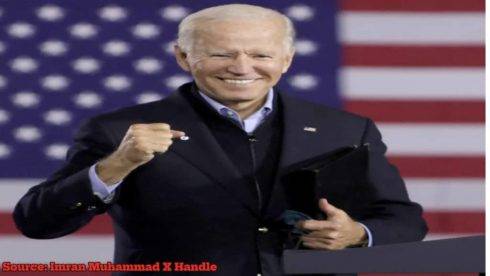The United States Senate has overwhelmingly voted in favor of a bill that could result in the ban of popular social media app TikTok unless its parent company, ByteDance, sells it to a US-based entity within the next year. The bill, which passed with a resounding majority of 79 to 18, has been in the spotlight for its potential ramifications on the future of TikTok’s presence in the American digital landscape. This move comes as part of broader foreign aid legislation aimed at supporting countries like Ukraine, Israel, and Taiwan.
The legislation, which initially passed in the House with a margin of 360 to 58, signifies a significant bipartisan effort to address concerns surrounding national security and data privacy, particularly regarding Chinese-owned tech companies operating in the US market. If signed into law by President Joe Biden, it will compel ByteDance to divest itself of TikTok or face expulsion from major US app stores. However, ByteDance has expressed its intention to contest the legislation through legal channels, setting the stage for a potentially protracted legal battle.
ByteDance Plans Legal Challenge Amidst Uncertainty Over US Senate Action
ByteDance, the Beijing-based tech giant behind TikTok, has signaled its intention to challenge the bill’s constitutionality, arguing that it infringes upon the First Amendment rights of TikTok’s vast user base. Michael Beckerman, TikTok’s head of public policy for the Americas, emphasized the company’s commitment to defending its platform in court, asserting that the legislation constitutes a violation of free speech protections enshrined in the US Constitution. Beckerman’s statement underscores the high stakes involved in the impending legal showdown, which could have far-reaching implications for the regulation of social media and digital content.
The prospect of a legal battle between ByteDance and the US government adds a layer of complexity to an already contentious issue, with implications for both domestic and international tech policy. Moreover, the outcome of this dispute may set a precedent for future regulatory actions targeting foreign-owned technology companies operating in the United States. Against the backdrop of escalating geopolitical tensions and growing scrutiny of Chinese tech firms, the fate of TikTok hangs in the balance, awaiting the resolution of legal challenges and political negotiations.
Political Battle Reaches Climax with Ban Passage
The passage of the ban on TikTok marks the climax of a protracted political battle that has spanned several years. Since its emergence in 2017, TikTok has rapidly gained popularity, becoming a cultural phenomenon among users worldwide. However, concerns over data privacy and censorship have fueled intense scrutiny and debate, culminating in the recent decision to ban the platform in the United States.
Former President Donald Trump first announced his intention to ban TikTok in 2020, citing national security concerns. Despite his efforts, the ban did not materialize, leading to continued tensions and uncertainty surrounding the platform’s future. Trump’s successor, President Biden, has also expressed reservations about TikTok, echoing concerns about potential data collection by its China-based parent company.
Lawmakers have raised alarms over TikTok’s data privacy practices, alleging that the platform could collect sensitive user data and censor content deemed critical of the Chinese government. These claims have been vehemently denied by TikTok, but they have nevertheless fueled widespread unease and calls for action. Congressional hearings have delved into the intricacies of TikTok’s operations, attempting to assess the validity of these concerns and determine appropriate regulatory measures.
Global Precedents and Regional Bans
The ban on TikTok in the United States follows similar actions taken in other parts of the world. In 2020, India banned TikTok in response to a series of dangerous challenges that resulted in the deaths of some users. The Indian government cited concerns over the platform’s content moderation and its potential impact on public safety. Additionally, TikTok is notably unavailable in China itself, where stringent internet regulations and censorship policies restrict access to foreign social media platforms.
Beyond national bans, TikTok has faced restrictions at the local level, with numerous college campuses, political offices, and individual states implementing their own prohibitions. These actions reflect growing unease over TikTok’s influence and the perceived risks associated with its operations. As debates continue over the appropriate regulatory framework for social media platforms, the ban on TikTok in the United States represents a significant development in the ongoing struggle to balance innovation, free expression, and data privacy in the digital age.
Table of Contents
Discover more from OGM News NG
Subscribe to get the latest posts sent to your email.














